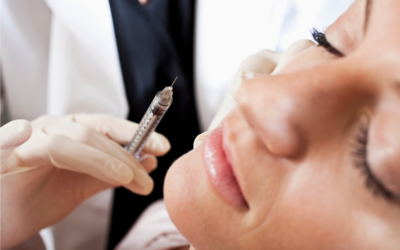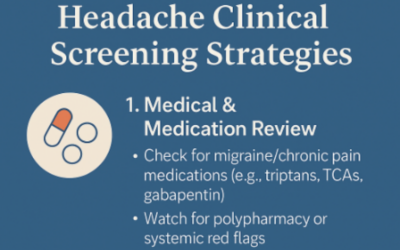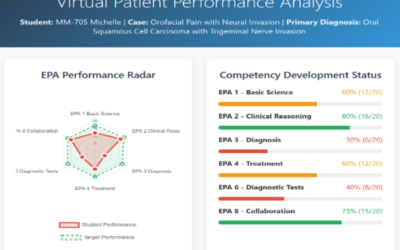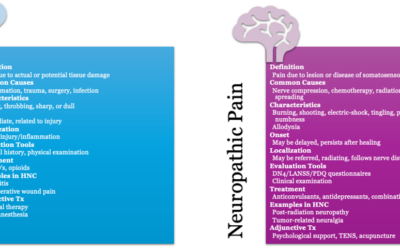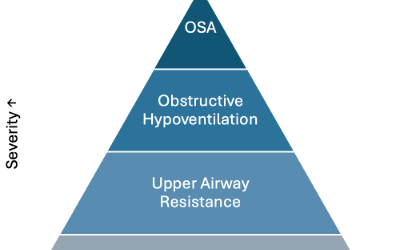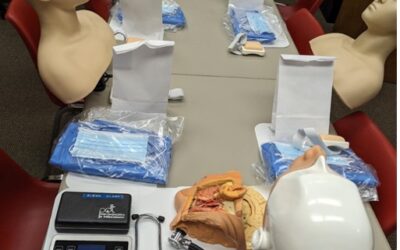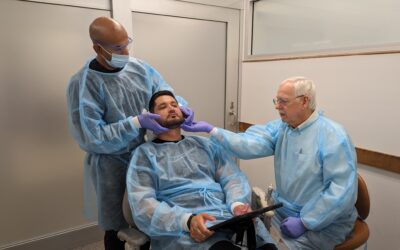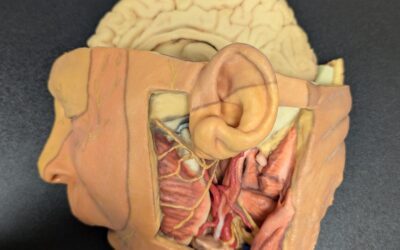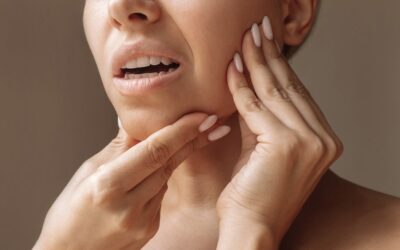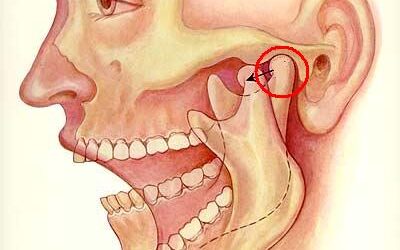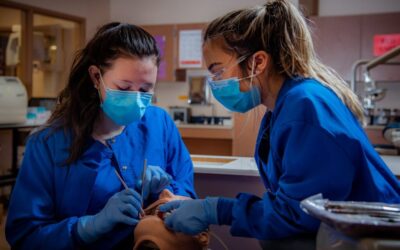https://open.spotify.com/episode/5Bgm6XtPWcpnMDJaZMVHn9?si=Y1bO_tE9QN6ZerCdNyR39w A bright, healthy smile is often one of the first things people notice, and research shows it can even influence social and economic opportunities. Individuals with untreated dental...
What Dental Practitioners Should Know about Hypersensitivity Reactions to Medications
https://open.spotify.com/episode/0H2XCOtNS0NE4JY6Y0f5zC?si=Pi5Yo_i2Qsew2Jcq5uKl-g Introduction In today’s dental practice, clinicians frequently care for patients whose systemic health and medication use intersect with oral conditions. Among the most clinically...
The Role of Hepatitis Vaccines in Oral Health
https://open.spotify.com/episode/5fhz5RzweOjfe5sz03oMKS?si=5d1HOITxSzipmjstLNWvZw The liver is one of our body's most essential organs, performing over 500 vital functions,including metabolism, detoxification, and protein synthesis. When viral hepatitis threatens this...
Botulinum Toxin for Orofacial Pain and What the Research Really Shows
https://open.spotify.com/episode/2RAIfX6qNfPbvivwWOY39h?si=Tlyvw_kbRiudq79pY8iHsw Orofacial pain conditions, particularly those involving muscle hyperactivity such as bruxism and temporomandibular disorders, affect millions of individuals worldwide [1]. As researchers...
Expanding the Clinical Role of Dentists in the Evaluation of Headaches
https://open.spotify.com/episode/4l2sr39e42e0hR1D4Xg0Rt?si=_VIo7TyBSF-X_oLDDIBZSQ Introduction Headaches are among the most common neurological complaints worldwide, affecting more than half of the population at some point in their lives. In the United States, the...
Measuring Hybrid-Online Resident Competency using (EPAs)
https://open.spotify.com/episode/3mkryXlUvR1IfnyV8DjY5R?si=3KwtVOpwSQqT-50lDcpoSA Introduction: The Evolution Toward Competency-Based Assessment The landscape of medical education has undergone a profound transformation over the past two decades, shifting from...
Neuropathic Pain in Head and Neck Cancer Patients
https://open.spotify.com/episode/1EnSYwst7O7FRjbn47n73F?si=Td06HPfPQGS0ebals7GvBw Introduction Head and neck cancer is, depending on the study cited, either the 6th or 7th most common malignancy globally, with the majority (~90% of cases) presenting as oral squamous...
The Physical Examination Gap: Why Symptom Checkers Can’t Replace Doctors
https://open.spotify.com/episode/2ct68rWf5Vqpykvku7yppC?si=ywOMUlcsQqqiQysGTrinCA In today's digital age, we've seen healthcare evolve in numerous ways. One increasingly common tool is the online symptom checker—websites or apps where patients input their symptoms and...
Why Repeated Short-Acting Anesthetic Nerve Blocks Likely Don’t Reset Central Sensitization
https://open.spotify.com/episode/4cBBVc3BkpwbbXIizajPPj?si=szUqCv2EQ6WpcyXCKtFPPw Pain is complex and central sensitization is hard to reverse. Anyone who has experienced persistent pain knows this deeply, but even from a neurobiological perspective, the intricacies...
Sleep-Disordered Breathing in Children: Long-Term Health Impacts
https://open.spotify.com/episode/7vSGywDDJGUnKv9djcGesF?si=cZYYA2RCQ5Ki-hRpwhr4rA Introduction Sleep-disordered breathing (SDB) in children has been recognized and treated since the 1800s with adenotonsillectomy (AT surgery) [1]. What once might have been dismissed as...
The Adolescent TMJ: How Bruxism Leads to Disc Displacement
https://open.spotify.com/episode/45Wa02wLw3ZQPq6hZ1ndOY?si=2jfcL-k3Ss6fabhDW3ixmQ Temporomandibular joint (TMJ) disorders affect millions worldwide, with disc displacement causing clicking and locking being one of the most common pathologies. While these disorders can...
Leading the Future of Orofacial Pain Through Teaching and Innovation
11-Minute Listen Introduction Orofacial Pain (OFP) is a specialized field within dentistry and medicine that addresses complex chronic pain conditions affecting the head, neck, and face. Despite its importance, the field faces significant challenges due to fragmented...
Integrating Temporomandibular Disorders into Dental Education
12-Minute Listen Temporomandibular disorders (TMDs) are a group of conditions that affect the temporomandibular joint (TMJ), masticatory muscles, and surrounding tissues, resulting in pain, limited jaw movement, and joint noises such as clicking or popping. TMDs...
Why is Phenotyping of TMD-OFP Patients Important?
8-Minute Listen In the field of temporomandibular disorders (TMD) and orofacial pain (OFP), we are facing a critical juncture in patient care. Our current diagnostic approach, while useful, may be too broad to capture the nuanced differences between patients...
Vitamin B12 and Alpha Lipoic Acid for Trigeminal Neuropathy
11-Minute Listen Chronic Trigeminal Neuropathy Chronic trigeminal neuropathy (CTN) involves damage or dysfunction of the trigeminal nerve, which is responsible for transmitting sensory information from the skin and mucosal surfaces of the face to the brain. Depending...
Why Don’t My Patients Get Better?
8-Minutes Listen As healthcare providers, we often encounter situations where our patients don't improve as expected, despite our best efforts and well-crafted treatment plans. This can be frustrating for both the patient and the practitioner. While it's natural to...
Proper Storage for Medications Prescribed for Orofacial Pain and Oral Medicine Patients
In Orofacial Pain and Oral Medicine, many chronic conditions need permanent storage of medications since patients need to take the medicines for months, even for years. The prescription is usually granted once every 8 to 12 weeks when the patient is seen in a...
Temporomandibular disorders and systemic diseases
Orofacial pain encompasses a range of conditions affecting the jaw, mouth, face, and associated regions. Temporomandibular disorders (TMD) are a subset of these conditions, characterized by symptoms such as face and neck muscle pain, nerve pain, temporomandibular...
Hybrid Learning for Orofacial Pain Expertise
In an ever-evolving world where technology continually reshapes how we learn and practice, the realm of dental education is no exception. While the Herman Ostrow School of Dentistry at USC has pioneered a Hybrid Online Competency-Based Residency Training, if...
The Impact of AI on Orofacial Pain and Oral Medicine
Artificial Intelligence (AI) is rapidly transforming various fields, and orofacial pain and oral medicine is no exception. This blog explores the impact of AI on diagnostic accuracy, patient care, and the overall practice of dental medicine. Understanding Orofacial...
How Conferences Keep Dentists on the Cutting Edge
As dentists and any other healthcare providers, we continually evolve with new research, techniques, and technologies. Attending professional conferences is an invaluable opportunity to stay updated, network with peers, and enhance practice. These past weeks, four...
TMJ-OA: Not Just an Older Person’s Problem
The temporomandibular joint (TMJ) comprises the mandibular condyle and the glenoid fossa of the temporal bone, covered by fibrocartilage, which provides greater resilience and support to mechanical stress [1]. This joint can be affected by bone deterioration, causing...
Compliance in Online Teaching: A Case Study of Orofacial Pain Program at Ostrow
In recent years, and especially during the COVID-19 pandemic, the landscape of higher education has undergone a significant transformation with the proliferation of online learning platforms and the increasing demand for flexible educational opportunities. In response...
Diagnosing TMD: When to Consider a Rheumatological Referral
Painful temporomandibular disorder (TMD) stands as a prevalent source of orofacial pain, affecting 5-12% of US adults. As dentists, our encounters with TMD cases are frequent, with patients presenting discomfort, audible sounds, or limitations in jaw movement. Despite...




